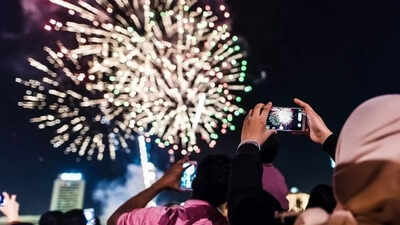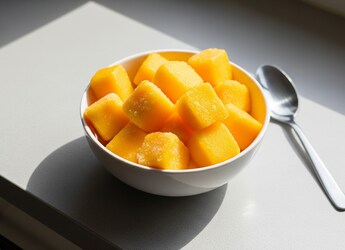ARTICLE AD BOX

Eid al-Adha, also known as the "Festival of Sacrifice," is one of the two major Islamic holidays, the other being Eid al-Fitr. The festival commemorates the willingness of Prophet Ibrahim (Abraham) to sacrifice his son Isma'il (Ishmael) in obedience to God's command.
Eid al-Adha serves as a reminder of faith, sacrifice, and the importance of community, offering Muslims an opportunity to reflect on these values and partake in the joy of the occasion, and share delicious meals with loved ones.However, there is often confusion regarding the correct spelling and pronunciation of the holiday's name.Eid-al-Adha or Eid-ul-Adha – which one is the correct pronunciation of the occasion?
The correct Arabic term:
The Arabic term for the holiday is عيد الأضحى (ʿīd al-ʾaḍḥā), which translates to "Festival of the Sacrifice."
The word ʿīd means "festival" or "celebration," and ʾaḍḥā refers to "sacrifice." This term is widely used in Arabic-speaking countries and Islamic texts.

Variations in English:
In English, the holiday is most commonly referred to as Eid al-Adha, which closely follows the Arabic pronunciation. This form is widely accepted and used in international media, academic publications, and official documents.Another common variation is Eid-ul-Adha, which is used in some regions, particularly in South Asia.
This variation is influenced by the Urdu language, where the preposition ul is used in compound terms. While this form is prevalent in countries like India and Pakistan, it is not the original Arabic construction.
Regional preferences:
The choice between "Eid al-Adha" and "Eid-ul-Adha" often depends on regional linguistic influences. In Arabic-speaking countries, "Eid al-Adha" is the standard usage. In contrast, in South Asian countries, "Eid-ul-Adha" is more commonly used due to the influence of Urdu and other local languages.

Although there are variations, both "Eid al-Adha" and "Eid-ul-Adha" are widely recognized and used to refer to the same Islamic festival. The former aligns closely with the original Arabic pronunciation, while the latter reflects regional linguistic practices. Regardless of the variation, the essence of the holiday remains the same, which is a time for Muslims to commemorate Prophet Ibrahim's devotion and obedience to God through acts of sacrifice and charity, and an opportunity to share the joy with their loved ones.The exact date of Bakrid is determined by the Islamic lunar calendar, specifically the sighting of the crescent moon marking the beginning of Dhul-Hijjah, the 12th month. In 2025, the new moon for Dhul-Hijjah is expected to be born on Tuesday, May 27, at 5:03 AM Mecca time. Consequently, Wednesday, May 28, is anticipated to be the first day of Dhul-Hijjah. This would place Friday, June 6, as Eid al-Adha, corresponding to the 10th of Dhul-Hijjah.
The celebration typically extends for four days, concluding on Monday, June 9.



.png)
.png)
.png)
















 4 hours ago
6
4 hours ago
6









 English (US) ·
English (US) ·